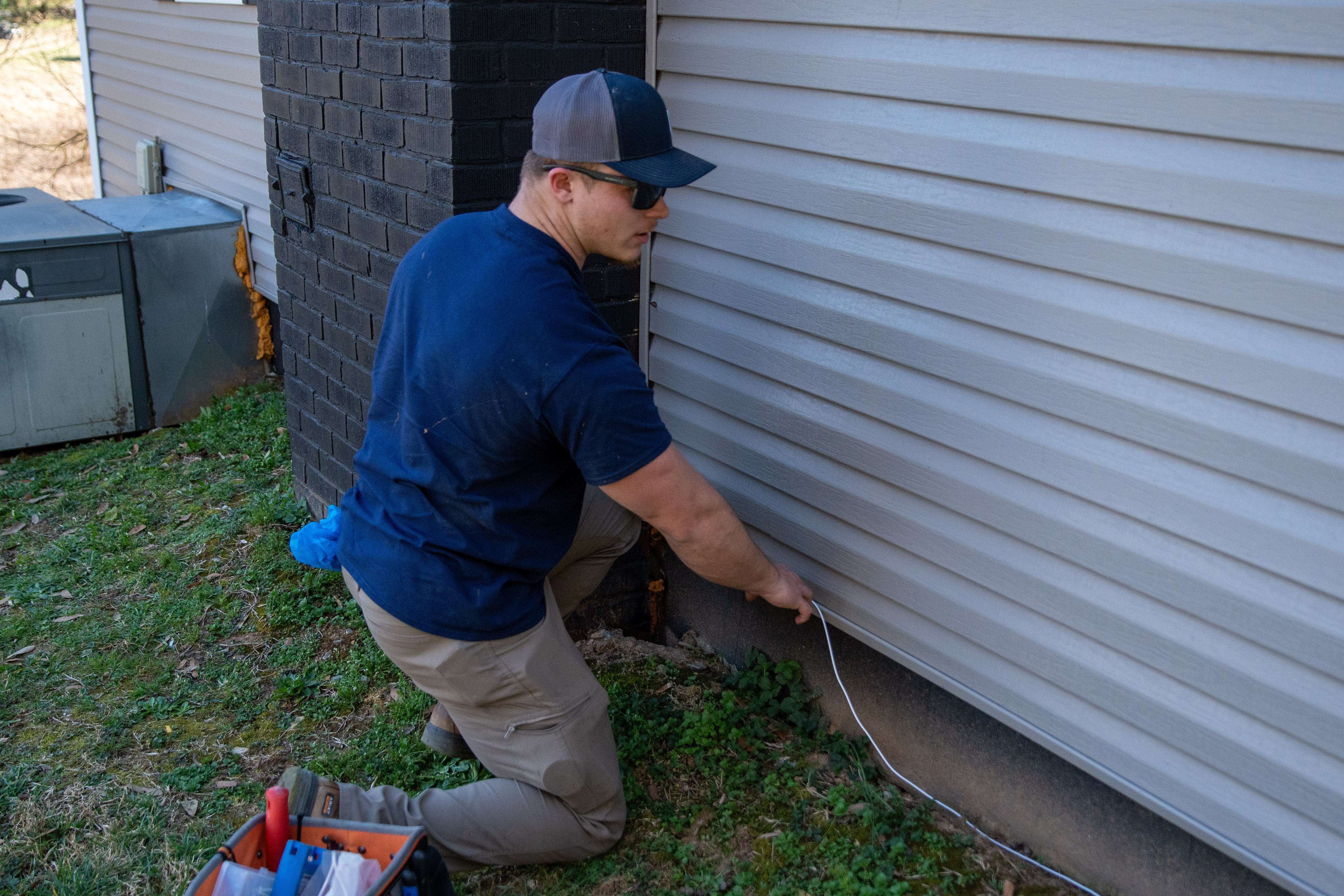With so many high-speed internet options available today — including fiber and 5G wireless — it can be hard to know what's the best choice. Since many people already pay for a mobile data plan, it's natural to wonder whether their cell phone provider could also be their internet provider.
KUB Fiber takes pride in offering the fastest and most reliable internet available. KUB is especially proud that these high-speed connections keep pace with Knoxville's ongoing growth, helping the community to compete in the global economy.
What is 5G or Wireless Home Internet?
With all the high-speed internet options available today, it's not surprising that customers need clarification when choosing an internet provider.
It's not only the technology that's complicated — even the names of different internet-related products and services can be so similar, making things more confusing for customers!
So, what is cellular or wireless/5G internet? Let's start with what cellular or wireless internet is not. First, wireless internet is not the same thing as WiFi.
WiFi disperses internet signal throughout a home or office so that all your devices — smart TVs, laptops, tablets, cell phones, smart speakers, etc. — can be connected to the internet without a wired connection.
Just like cable, satellite, or fiber internet, cellular or wireless internet enters the home or business and is typically distributed via WiFi through a router or similar device. In most cases, customers rely on WiFi and a router to connect their devices — since hardwiring every connection is rare and often impractical.
Cellular or wireless internet, also known as 4G or 5G internet, is delivered by cell phone towers. Instead of being delivered by a hardwired connection like coaxial cable or fiber, cellular or wireless internet is transmitted "through the air."
While it can often deliver decent speeds, wireless or 5G internet is notorious for service interruptions due to obstructions from other structures. And because cellular/wireless or 5G internet is totally dependent on the number of cell phone towers dispersing signal — and the distance a customer is from a cell phone tower — their speeds and quality of the connection can greatly vary.
What is Fiber Internet?
Fiber internet's advanced materials and technology make it the fastest and most reliable form of internet on the market today. Short for "fiber optic" internet, fiber utilizes fiber optic cable, which consists of hundreds of densely packed strands of glass inside the cord.
The fiber optic cable connects directly to your home or business before being dispersed to your devices. Pulses of light transmit internet data along these glass hairs at near light speed!

Due to fiber's impressive components and infrastructure, it has a vastly greater capacity to handle and transmit all the online data that you use daily — from social media, documents, and emails to music, gaming, and television.
Fiber also has higher upload speeds, which is used when your device sends information back to the server (or other internet users). Higher upload speeds are essential for stable and clear video calls and conferences.
Only fiber can power a household full of devices at once without causing slowdowns on any of them — making it the No. 1 choice for modern households.
Fiber vs 5G Internet: Which is Better?
Fiber's advantages over cellular/wireless internet extend well beyond fiber's superior speed and reliability (as essential as they are). Better data security is another reason to choose fiber.
Because cellular/wireless internet requires a signal to transmit "over the air," it is susceptible to being intercepted.
Wireless internet is especially prone to a particular cybercrime known as a DDoS Attack — short for "Distributed Denial-of-Service (DDoS) Attack." DDoS attacks overwhelm servers and slow down traffic, even jeopardizing sensitive data. And DDoS attacks are unfortunately on the rise.
Fiber, on the other hand, is hardwired straight to your walls — its internet flies through fiber optic cable without needing to disperse signal through the air. Thus, fiber's advanced technology provides a layer of protection and security from hackers, scammers, and other criminals that cellular or wireless internet simply cannot.
With Fiber, you not only experience faster speeds, but you can count on a secure connection, reliable signals, and the capacity to carry out online activities from multiple devices simultaneously. It’s clear that fiber internet stands ahead of cellular/wireless 5G internet.
Learn more about fiber internet and what KUB has to offer here.
| Feature | Fiber Internet | 5G/Wireless Internet |
|---|---|---|
| Speed | Up to 1 Gbps+ | Varies (50-300 Mbps avg) |
| Reliability | Highly Reliable | Prone to Dropouts |
| Security | Very Secure (wired) | Susceptible to Attacks |
| Ideal for | Streaming, Gaming, Smart Homes |
Light Browsing |